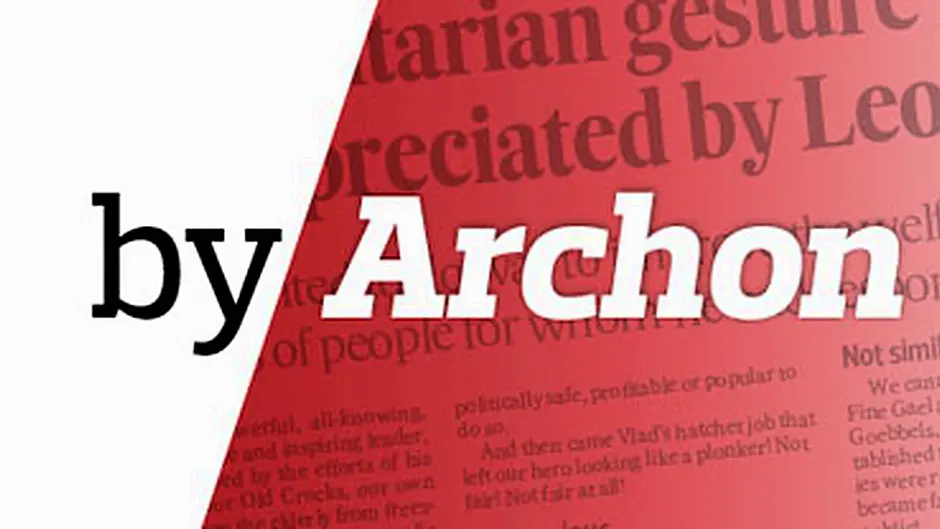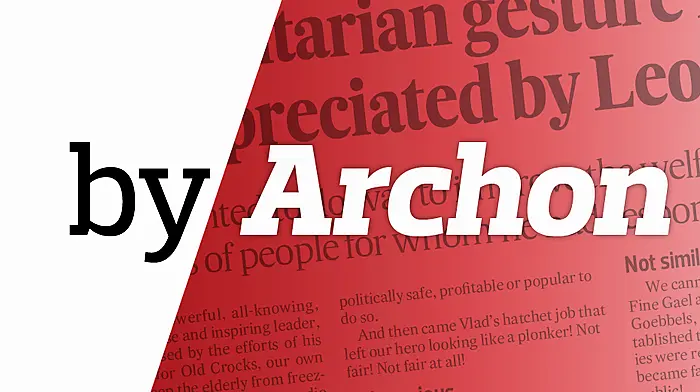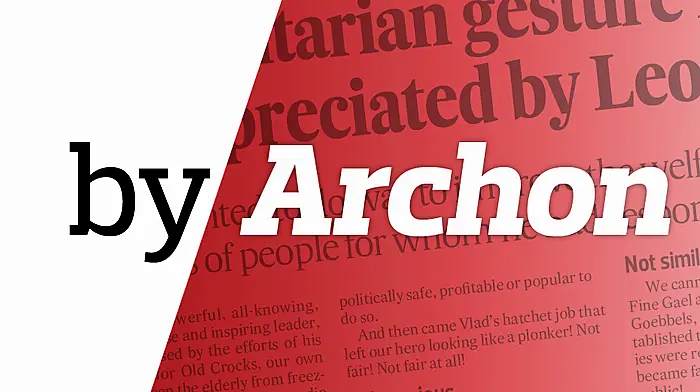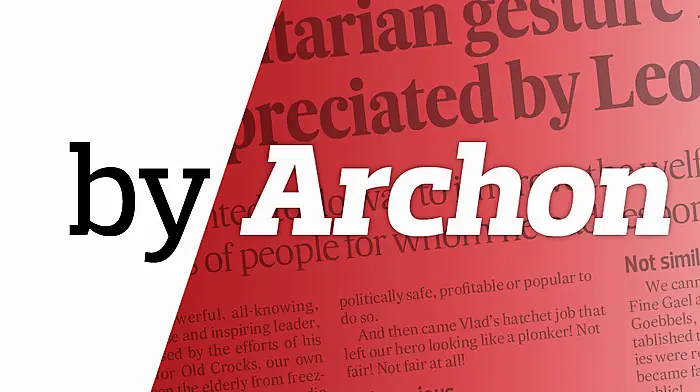Immigrants would have to be seriously wealthy, motived by business interests and keen to stay out of Communist China’s clutches
BACK in 1983, an insane Margaret Thatcher had a serious problem: Hong Kong, than a British colony and protectorate, was facing absorption into the People’s Republic of China.
What was she to do to prevent the city falling into the hands of the Commies? Sending in the gun boats, as her predecessors would have done, was out of the question.
It was then that she got her great idea. She ordered Foreign Office minions to produce a confidential report in which an argument would be made to encourage very wealthy Hong Kong citizens to consider moving to the North of Ireland.
The plan would be triggered should the proverbial crap hit the fan and the super-rich in Hong Kong needed a bolthole in which to take refuge.
Entitled ‘The Replantation of Northern Ireland from Hong Kong’ the document encouraged wealthy Hong Kongers to head for a part of the Empire (oops, Commonwealth!) where they’d be safe and could continue to make pots of dough. Britain, they were told, already had thousands of Chinese, so the next best place was the North of Ireland.
Thatcher’s report said they’d be most welcome in ‘Ulster’ – at a remote spot in ‘County Londonderry’ to be precise: Magilligan, right on the border with Éire.
Bleak and all as the North might be, extraordinarily wealthy Hong Kong-Chinese would be free to build a city for themselves, should they so desire.
Just a joke!
Whether or not it was an in-house British Foreign Affairs joke is open to question, but it is a fact that Thatcher wholeheartedly agreed with the argument put forward by her senior officials.
A huge influx of Chinese nationals from Hong Kong would contribute to a political settlement in the North ‘by greatly outnumbering the acrimonious nationalist and unionist populations.’ What a lark! Chinatown on the Border and the IRA whacked!
Presumably she allowed herself a light-hearted titter at such a jocular way to solve the Northern crisis. However, the racist, colonial tone of the document shocked some British Foreign Office mandarins who persuaded Thatcher to drop the idea and to lock the document in a remote Whitehall cupboard.
Whether or not the Chinese colonising plan was the work of a Tory balm-pot, or the result of Thatcher mixing too much Effexor with her gin and tonic, we’ll never know. What is a fact is that the consequences of the ‘joke’ remained.
Recently, Thatcher’s China-plan-for Ireland was picked up by a Hong Kong based billionaire, Ivan Keo, boss of the Victoria Harbour Group. In his opinion, a city in Ireland tailor-made for the thousands of wealthy Chinese wanting to flee Hong Kong when the Reds moved in, made sense.
‘Nestopolis’
But the location was changed. The South was deemed preferable to the Six Counties and, in the process, Thatcher’s jokey plan acquired an unexpected significance.
It was suggested that as many as half a million very wealthy Hong Kong nationals would be prepared to live in the south of Ireland, so Mr Keo began searching for a site to build a city for the expected thousands of Hong Kong residents prepared to make a new life here.
He even has a name for the new city, ‘Nestopolis’ and, according to reports, he is sourcing a vast 500 square kilometres area of land where he wants to construct a mini Hong Kong.
Several locations are under consideration. There’s a site to the east of Galway city, an area north of Limerick city, a plot outside Waterford city, a place near Killarney and a site in East Cork, outside Carrigtwohill, which a UK based property company already has its eye on for a multi-million tourist and shopping development.
Mr Keo’s basic requirement is that the city must be close to motorways, seaport and airports and, so far, Dundalk seems to be the most attractive option for his new urban settlement -largely because of its location, midway between Belfast and Dublin.
Of course, the Chinese immigrants who would live in this new, semi-independent international / Irish city would have to be seriously wealthy, motived by business interests and keen to stay out of Communist China’s clutches.
New city
According to Ivan Keo, about 15,000 Hong Kong residents are prepared to make the move to Ireland and he says that, after 20 years, around 100,000 people would be living in a new Irish city.
The penny also is dropping that should Hong Kong come under a hard-line Chinese regime, a sharp increase in the number of wealthy Chinese seeking a home in this country is very likely.
Which, in turn, raises this question: what if there’s a mass movement of thousands of Hong Kong people seeking a new life here, and not only the super-rich? Would Ireland encourage such a development?
Independent of the Keo plan, Chinese nationals have been expressing an interest in living in Ireland and auctioneers have commented on the small but growing number of Hong Kongers purchasing top-of-the-range luxury homes in this country.
Many of these people, of course, would not be refugees in the strict sense of the word, but wealthy Hong Kongers who have the cash to put down roots in this country.
Seeking sanctuary
Mr Keo, on the other hand, has a stand-alone Hiberno-Chinese city in mind which would be quasi-independent but within Ireland’s boundaries.
If we can accurately assess his plan, a Hiberno-Chinese city would have the freedom to govern itself and control its own affairs although responsive to Irish law and the Irish legal system.
He explained recently: ‘We are targeting the city ultimately or ideally to be 50% Hong Kong people and 50% local people, with people from around the world. It would be an Irish city with many Hong Kong residents.
‘Hong Kongers are merely seeking a sanctuary where their rights would be respected and are not looking for a city where they would be in charge.’
According to a Department of Foreign Affairs expert, the new city would have an initial population of 50,000, but would grow to 500,000 over 20 years, fifty percent of whom would be people from Hong Kong and up to 30 per cent from Ireland and Europe.
Mr Keo’s ambitious plan for a semi-autonomous Chinese city in the heart of Ireland is novel and should not be rejected out of hand. Importantly, it could offer safety to tens of thousands of wealthy Hong Kong citizens fleeing China’s crackdown, and it also would assist the Irish Government’s plan to develop regions outside Dublin!










